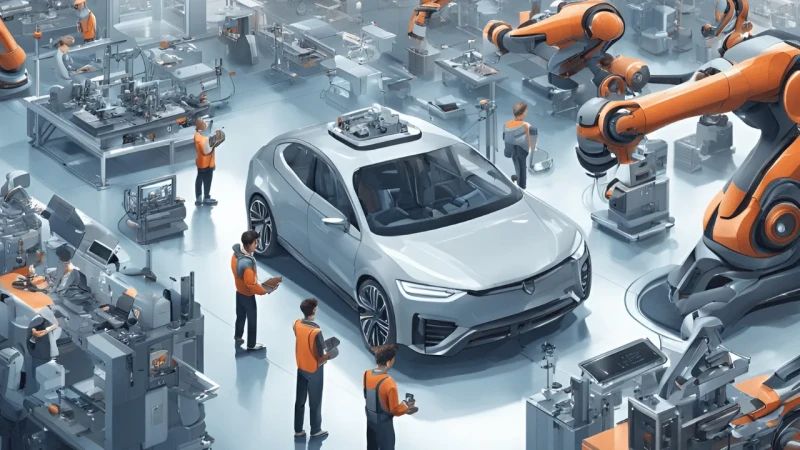What is Automobile Engineering?
Automobile engineering, also known as automotive engineering, is a branch of engineering that focuses on designing, manufacturing, and operating automobiles. This field of engineering involves a blend of various disciplines such as mechanical, electrical, electronic, software, and safety engineering.
The Scope of Automobile Engineering
Design and Development
Automobile engineers are responsible for designing new vehicles and ensuring they are efficient, safe, and comfortable. They work on creating prototypes and models using advanced technologies and computer-aided design (CAD) software.
Manufacturing and Production
In this phase, engineers oversee the production of vehicles, ensuring that the manufacturing process is efficient and cost-effective. This includes managing assembly lines, quality control, and the integration of new technologies into production.
Testing and Quality Assurance
Automobile engineers conduct rigorous testing of vehicles to ensure they meet safety and performance standards. This includes crash testing, emissions testing, and endurance testing under various conditions.
Key Areas of Automobile Engineering
Mechanical Systems
This involves the study and application of mechanical principles in vehicles, including the engine, transmission, suspension, and braking systems.
Electrical and Electronic Systems
Engineers in this area focus on the vehicle's electrical systems, including the battery, alternator, lighting, and infotainment systems. With the rise of electric vehicles, this area has become increasingly important.
Software Engineering
Modern vehicles rely heavily on software for various functions such as navigation, entertainment, and safety features. Software engineers develop and maintain these systems, ensuring they are reliable and user-friendly.
Safety Engineering
Safety is a critical aspect of automobile engineering. Engineers work on designing and implementing safety features such as airbags, seatbelts, and advanced driver-assistance systems (ADAS) to protect passengers and reduce accidents.
The Evolution of Automobile Engineering
The Birth of the Automobile
The history of automobile engineering dates back to the late 19th century with the invention of the first gasoline-powered car by Karl Benz. This invention marked the beginning of a new era in transportation.
Technological Advancements
Over the years, automobile engineering has seen significant advancements in technology. From the introduction of assembly lines by Henry Ford to the development of electric and hybrid vehicles, the industry has continuously evolved.
The Future of Automobile Engineering
The future of automobile engineering lies in the development of autonomous vehicles, sustainable energy sources, and smart technologies. Engineers are working towards creating self-driving cars, improving battery technology for electric vehicles, and integrating artificial intelligence into vehicle systems.
Career Opportunities in Automobile Engineering
Automotive Design Engineer
These engineers are responsible for the overall design and aesthetics of vehicles. They work closely with manufacturers to create visually appealing and functional designs.
Production Engineer
Production engineers oversee the manufacturing process, ensuring that vehicles are produced efficiently and meet quality standards. They work on optimizing assembly lines and managing production schedules.
Quality Control Engineer
Quality control engineers conduct tests and inspections to ensure that vehicles meet safety and performance standards. They play a crucial role in maintaining the quality and reliability of automobiles.
Research and Development Engineer
R&D engineers work on developing new technologies and innovations in the automotive industry. They conduct research, create prototypes, and test new concepts to improve vehicle performance and efficiency.
Conclusion
Automobile engineering is a dynamic and exciting field that plays a vital role in the development of modern transportation. With the continuous advancements in technology, the future of automobile engineering holds great promise for creating safer, more efficient, and environmentally friendly vehicles. Whether you are interested in design, manufacturing, or research, a career in automobile engineering offers numerous opportunities to innovate and make a significant impact on the automotive industry.
FAQs
What qualifications are required to become an automobile engineer?
A bachelor's degree in mechanical engineering, automotive engineering, or a related field is typically required. Advanced positions may require a master's degree or specialized training.
What skills are essential for a successful career in automobile engineering?
Key skills include strong analytical and problem-solving abilities, proficiency in CAD software, knowledge of automotive systems, and excellent communication skills.
How is the automotive industry evolving with new technologies?
The automotive industry is rapidly evolving with the development of electric vehicles, autonomous driving technologies, and smart systems that enhance vehicle performance and safety.




